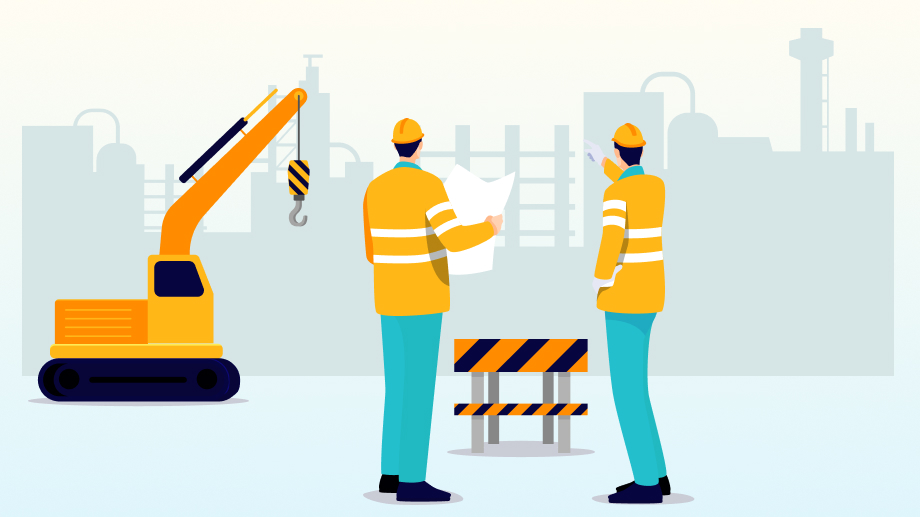The construction industry has long been at the forefront of shaping the world around us, erecting towering skyscrapers, building robust infrastructure, and creating spaces that serve as the foundation for modern living. However, traditional construction workflows have often needed to be more efficient, hindering productivity and profitability.
The advent of digital technologies has ushered in a transformative era, prompting construction companies to re-evaluate their operations and embrace innovative solutions to remain competitive.
At the forefront of this digital revolution are cutting-edge field service management platforms designed to cater to the unique needs of modern construction companies. With a comprehensive suite of features and advanced capabilities, such apps revolutionize the way construction workflows are managed, from scheduling and dispatch to monitoring, field data collection, and reporting and analytics.
The Pressing Need for Digitization in Construction Workflows
The construction industry has long grappled with a multitude of challenges stemming from inefficient and outdated processes. Manual scheduling, dispatch, and time tracking procedures have proven to be cumbersome, error-prone, and time-consuming, resulting in costly delays and operational inefficiencies.
According to a report by McKinsey & Company, the construction industry has experienced a staggering productivity growth of only 1% over the past two decades, significantly lagging behind other sectors. This stark reality underscores the pressing need for digitization and the adoption of innovative technologies to streamline workflows and enhance overall productivity.
As construction projects become increasingly complex, with intricate supply chains, stringent compliance requirements, and evolving safety standards, the need for digitizing workflows has become paramount. Manual processes simply cannot keep pace with the demands of modern construction, leaving companies vulnerable to costly errors, delays, and potential regulatory violations.
Advanced Time Tracking Solutions for Construction Companies
Advanced time tracking solutions tailored specifically for the construction industry is a cornerstone of modern construction management software. These innovative features offer precise timekeeping capabilities while also improving productivity, reducing costs, and ensuring compliance with regulatory requirements.
1. Geofence Time Clock: By leveraging geofencing technology, construction companies can accurately track employee time at job sites. This feature ensures that employees are clocking in and out at the correct locations, minimizing the risk of time theft and ensuring accurate payroll calculations.
2. Crew/Group Check-in: Managing teams on construction sites can be a daunting task, but crew/group check-in feature simplifies the process. Construction companies can effortlessly track the attendance and whereabouts of their crews, ensuring efficient deployment and maximizing productivity.
3. Shift Differential and Overtime Tracking: Construction projects often involve irregular work schedules, with employees working varying shifts and overtime hours. allGeo’s shift differential and overtime tracking capabilities ensure that employees are fairly compensated for their efforts, reducing the risk of payroll disputes and improving employee satisfaction.
4. Pay Codes: Pay codes feature allows construction companies to customize payroll management according to their unique requirements. By assigning specific pay codes to different tasks or job types, companies can accurately track labor costs and ensure compliance with project budgets and billing requirements.
A survey by the Associated General Contractors of America found that 83% of construction firms experienced project delays due to inadequate workforce management. Effective time tracking and crew management tools can help mitigate these challenges by optimizing resource allocation and improving workforce productivity.
Ensuring Compliance and Safety with allGeo
Compliance and safety are paramount concerns in the construction industry, and allGeo offers powerful tools to address these critical aspects. Real-time monitoring and alerts help ensure worker safety, while accurate record-keeping and reporting capabilities enable construction companies to comply with OSHA regulations and industry standards.
1. Worker Safety: Real-time monitoring and alert system enables construction companies to keep a watchful eye on their workforce, ensuring their safety and well-being. Supervisors can receive notifications if an employee enters a hazardous area or fails to check in at a designated time, allowing for swift intervention and response.
2. OSHA Compliance: Compliance with OSHA regulations is a top priority for construction companies, and allGeo’s robust record-keeping and reporting capabilities facilitate adherence to these standards. By accurately tracking employee time, attendance, and job site activities, construction companies can maintain detailed records and generate comprehensive reports to demonstrate compliance during inspections or audits.
3. Safety Attestation: allGeo addresses safety attestation requirements, further enhancing compliance efforts. Construction companies can leverage this feature to ensure that employees acknowledge and adhere to safety protocols, reducing the risk of accidents and injuries on job sites.
According to the Occupational Safety and Health Administration (OSHA), the construction industry accounted for 21.1% of worker fatalities in 2022, highlighting the importance of robust safety measures. By implementing safety and compliance features, construction companies can proactively mitigate risks and foster a culture of safety, protecting their workforce and safeguarding their operations.
The Future of Construction Workflows: Embracing Digital Transformation
As the construction industry continues to evolve, the adoption of digital technologies and innovative solutions become increasingly crucial for companies to remain competitive and thrive in a rapidly changing landscape. The benefits of digitizing construction workflows and embracing field service management platforms extend far beyond operational efficiencies and cost savings.
1. Enhanced Collaboration: By leveraging allGeo’s centralized platform, construction companies can foster better collaboration among teams, ensuring seamless communication and coordination across multiple job sites and stakeholders.
2. Data-Driven Decision Making: allGeo’s robust reporting and analytics capabilities provide construction companies with valuable insights into their operations, enabling data-driven decision-making and informed strategic planning.
3. Competitive Advantage: Companies that embrace digital transformation and adopt solutions like allGeo gain a significant competitive edge, positioning themselves as industry leaders and attracting top talent in an increasingly tech-savvy workforce.
4. Future-Proofing Operations: As the construction industry continues to evolve, companies that have already digitized their workflows and implemented field service management platforms like allGeo will be better equipped to adapt to emerging trends and technologies, ensuring long-term sustainability and growth.
Driving Sustainability and Environmental Responsibility
As the construction industry continues to grapple with the challenges of sustainability and environmental responsibility, construction management software should contribute to reducing the industry’s carbon footprint and promoting eco-friendly practices.
1. Paperless Operations: By digitizing construction workflows and leveraging mobile forms for field data collection, you can eliminate the need for paper-based documentation, reducing waste and promoting a more sustainable approach to construction operations.
2. Optimized Resource Allocation: Advanced scheduling and dispatching capabilities enable construction companies to optimize resource allocation, minimizing unnecessary travel and reducing fuel consumption, thereby lowering their overall carbon emissions.
3. Analytics for Sustainability Initiatives: Reporting and analytics features can provide valuable insights into resource utilization, enabling construction companies to identify areas for improvement and implement sustainable practices, such as waste reduction, energy efficiency, and responsible material sourcing.
By embracing a digital workflow, construction companies not only streamline their operations but also demonstrate their commitment to environmental stewardship, positioning themselves as responsible corporate citizens in an increasingly eco-conscious market.
Conclusion
The digital revolution in the construction workflows is well underway, and allGeo by Abaqus stands as a powerful catalyst for this transformation. By digitizing workflows and leveraging advanced field service management capabilities, construction companies can experience significant productivity boosts, enhanced accuracy in payroll and job costing, and improved compliance with industry regulations.
With advanced time tracking solutions, safety, and compliance tools, a construction workflows automation tool empowers construction companies to streamline their operations, optimize resource allocation, and gain a competitive edge in an increasingly digital landscape.
Embracing technology is no longer an option but a necessity for construction companies seeking to stay competitive and thrive in an increasingly digital landscape. By adopting allGeo, you can future-proof your operations, drive sustainability initiatives, and position yourself as industry leaders in an era of digital transformation.



